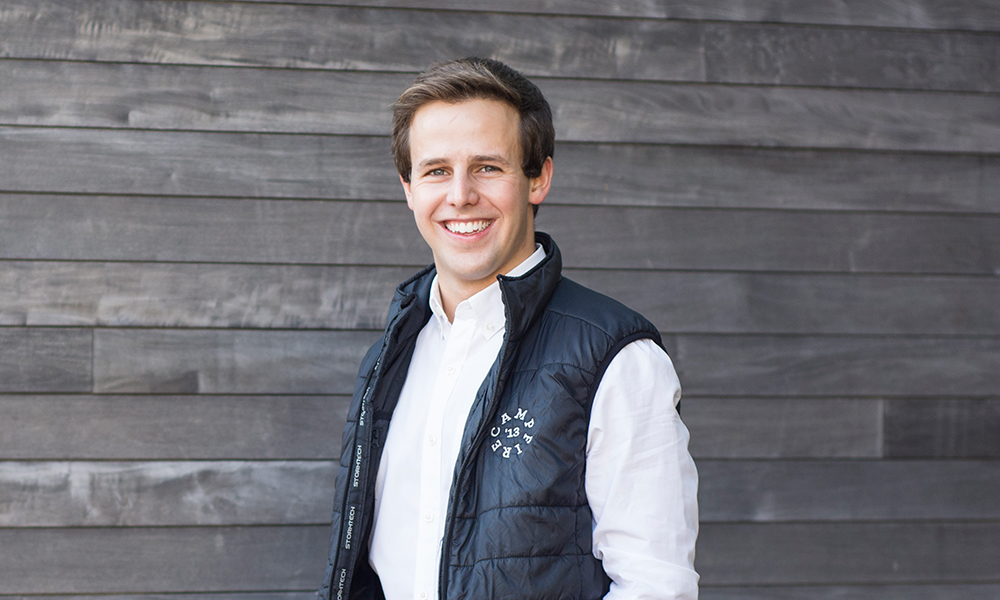“I believe that sometimes when you know exactly what you want to do in ten years, you should just do it now.”
So says Nathaniel Brooks Horwitz, formerly a senior MCB concentrator from the Chad Cowan Lab at the Harvard Stem Cell Institute and the David Sinclair Lab at Harvard Medical School. Horwitz has left Harvard to found Nivien Therapeutics, along with his business partner Nikita Shah, who graduated from Harvard this spring. They plan to develop cancer therapies based on research conducted by Marc Kirschner, founding chair of Harvard Medical School’s Department of Systems Biology.
“I knew early on that I was really passionate about translating scientific research into applied technology, but at Harvard I was much more of a bench researcher,” said Horwitz. “The summer after sophomore year, I worked at a biotech venture capital firm in Boston during the day and a lab here at Harvard in the evenings. I learned that I’m much more excited about the translational process than about pure bench research.”
Although his heart may not have been in pure research, Horwitz likely would have finished his time at Harvard as usual if he had not been inspired by Kirschner’s work. In a paper published in the May 2017 issue of PNAS, Kirschner described the effect that the inactivation of a certain signalling pathway could have on the effectiveness of chemotherapy.
In the paper, “Hippo pathway mediates resistance to cytotoxic drugs,” Kirschner describes his method for making cancer cells more sensitive to oncology drugs by inactivating the Hippo-YAP pathway. In the paper, he specifically describes the effect of pathway inactivation on the cancer’s response to the drug gemcitabine, a commonly used drug to treat pancreatic cancer.
“The way I like to characterize it is instead of going after the cancer directly, we’re going after the biological mechanisms – the shields – that enable cancer to resist existing treatments,” Horwitz said. “The intellectual property based on Kirschner’s work covers more than a dozen different types of cancer, from pancreatic ductal adenocarcinoma, to breast cancer, glioblastoma, ovarian cancer, and several others.”
Horwitz’s belief in the value of these findings, along with his experience working for a biotech firm before his junior year, convinced him that it was time to strike out with his own startup. During his junior year, Horwitz and Shah began researching sources of funding for their company and consulting with their mentors at Harvard. On the basis of their positive feedback, Horwitz decided to drop out of school for now and take Nivien Therapeutics to San Francisco, though he plans to return to finish his degree at some point.
Funding for Nivien has come from various venture capital sources. $250,000 came from the venture capital fund SOSV, which will also provide lab space at their IndieBio Accelerator in downtown San Francisco, where Nivien’s team will collaborate with other biotech startups. They also are funded by the Rice Business Plan Competition in Houston, First Round Capital’s Dorm Room Fund, and by a biotech angel investor.
Nivien’s team includes Dr. Ivory Dean, who finished her postdoctoral work studying breast cancer at the University of California, San Francisco (UCSF), and Dr. Ken Fang, who worked for the pharmaceutical giant Allergan for 17 years, and who is listed as an inventor on 56 patents. Nivien’s scientific advisory board includes Kirschner and David Sinclair from Harvard Medical, Derrick Rossi from Boston Children’s Hospital/HSCI, Motaz Qadan from MGH, and Andre Watson from the biotech company Ligandal.
“We’ve got a really solid team now we are really looking forward to what comes next,” Horwitz said.
More about Horwitz can be found at his blog, where he chronicles his experiences in the early stages of Nivien.
by Mary Parker


